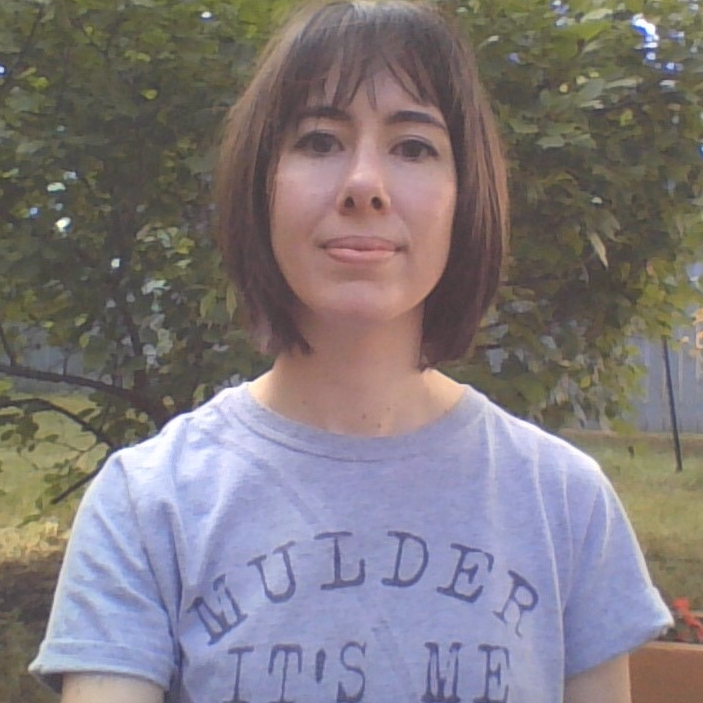Our Faculty and Staff
Rachel Williamson, Ph.D.
Assistant Professor, Clinical Psychology
Contact
- Office
- Skaggs 239
- Phone
- 406-243-4921
- rachel.williamson@umontana.edu
- Office Hours
Office Hours: Thursdays 9am —11am
I plan to accept one graduate student to begin Fall 2024.
Education
Ph.D., Clinical Psychology, Palo Alto University (2017 - predoctoral internship completed with the Alaska Psychology Internship Consortium at Norton Sound Health Corporation)
M.S., Clinical Psychology, Palo Alto University
B.A., Psychology, Minor: English, University of Alberta
Courses Taught
Graduate Courses:
PSYX 551 Advanced Personality
PSYX 631 Conceptualizations and Treatment of Trauma
Undergraduate Courses:
PSYX 120 Research Methods
PSYX 378 Intro to Clinical Psychology
PSYX 222 Psychological Statistics
Teaching Experience
University of Montana (2021-Present)
St. Lawrence College, Kingston, Ontario (2018-2021): Statistics, Psychometrics, Personality Theory, Abnormal Psychology, Honors Thesis Supervision
Research Interests
My research interests focus primarily on the application of existential theory and social psychological theories of meaning-making to psychological trauma. Although clinical conceptualizations of trauma, i.e., PTSD, are often included in my work, I am most interested in studying symbolic trauma. This involves the examination of situations and experiences that are impactful, not necessarily due to a literal threat to one's safety, but because of a threat to one's existential security. I view my research program as theory-based and with an emphasis on applied statistical modeling. By attending to the influence of statistical choices on theory development and paradigm design, both the precision and possibilities of research increases, and isn’t that exciting! Collaborations with students and colleagues, locally and internationally, are important components of my research program. The diversity that students and other collaborators bring to the research process is a resource and a strength—I am always happy to merge my interests and skillset, when appropriate, to support specific topics meaningful to my students and colleagues.
Projects
Ongoing Projects (not exhaustive)
Global Collaboration on Traumatic Stress: Ongoing research collaborations with academics and clinicians from around the world on projects related to cross-cultural experiences of traumatic stress (e.g., recent projects related to mental health responses to the COVID-19 pandemic worldwide; for published papers see: https://www.global-psychotrauma.net/covid-19-projects).
Climate Change: Emergent line of research aimed at understanding and addressing the mental health impacts of climate change. Beyond the acute impact of extreme weather events, I am interested in the experienced and anticipated loss and trauma related to the destruction of landscapes, displacement of communities and cultural practices, and possible impermanence of the planet. I am co-chairing the Climate Change theme within the Global Collaboration on Traumatic Stress, which convenes researchers from around the world to design and collaborate on research projects at the intersection of traumatic stress and climate change (https://www.global-psychotrauma.net/climate).
Perpetrator Trauma: Ongoing research that builds on a developed theory of traumatic dissonance, which describes the socio-cognitive mechanisms responsible for traumatic responses to one's own act of perpetration (Williamson, Reed & Wickham, 2020). Traumatic Dissonance suggests that a violation of one’s symbolic source of self-esteem and meaning, without reconciliation, represents a traumatic experience that can produce significant psychological distress. This model supports existing research documenting the potential psychological impact of certain acts of perpetration but re-conceptualizes the phenomenon in terms of general existential motivations.
Feminist Existential Psychology: Ongoing line of inquiry aimed at expanding the current empirical literature within existential psychology to include underlying existential concerns specific to the gendered aspects of being. Much of the existing research related to gender within experimental existential psychology focuses on how others experience the female body, rather than on the experience of being in a female body. In such research, women remain objects to be related or reacted to, rather than subjects and owners of their own experience. Forthcoming paper (Williamson, Courtney, & Goldenberg, in press) provides a step towards addressing this gap through the application of theory and findings from experimental existential psychology to the experience of women during the MeToo movement.
Professional Experience
Licensed Psychologist (Montana).
My clinical experience is largely based in community mental health, including homeless shelters in the San Francisco Bay Area and health clinics in remote Alaskan communities. Across these different sites, I have worked with a diverse population with a wide range of chronic and acute mental health problems, including, mood disorders, complex trauma, chronic suicidality, substance abuse, and psychosis.
Hobbies
Playing records and looking for lights in the sky.

